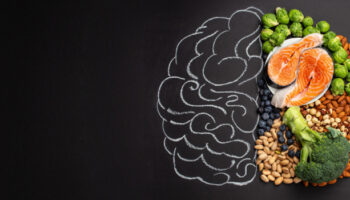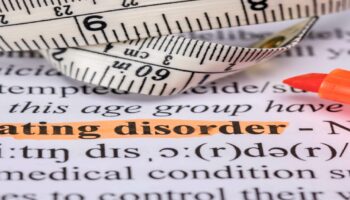Do I Have an Obsession with Healthy Eating?
The Nystrom & Associates provider consulted for this article on orthorexia is Dr. Karin Ryan, PsyD, LP, Clinic Director, and Outpatient Therapist.
Eating healthy is usually a good thing. It’s important to fuel our bodies with nutrients and ingredients that strengthen ourselves. But, sometimes, focusing on it too much can be harmful.
Do you find yourself compulsively checking food labels to make sure that there aren’t any “bad” ingredients? Do you have a list of foods that you can’t eat because they aren’t up to your healthy standards? Or do you find yourself skipping activities or events where you cannot control the menu or what you are eating?
If you answered “yes” to any of these questions, you might have an obsession with healthy eating, also known as orthorexia. Keep reading to learn how to help your obsession with healthy eating.
What is Orthorexia?
Orthorexia is an unhealthy focus on eating healthily. This obsession can be so extreme that it can damage your overall well-being. This term was coined by Steven Bratman, a California doctor, in 1996. Although it is not a current diagnosis in the DSM-5, it is well-known.
As Dr. Karin Ryan explains on Twin Cities Live, orthorexia focuses on “healthy eating. What is healthy, what’s good, what’s bad, what follows my rules, [and] what doesn’t?”
Orthorexia typically connects to anxiety and a need to be in control. It can also relate to perfectionism and a need to feel “good enough” in others’ eyes.
So, how do you know if you have an unhealthy obsession with healthy eating?
Related: Food & Mood: How Are They Linked?
Signs that You Have an Obsession with Healthy Eating
Eating healthy is often viewed by society as a positive thing, and it can be hard to determine when your healthy eating has become an obsessive situation. Here are a few signs to keep in mind:
- You can’t enjoy activities or events because you can’t eat the way that you want
- You find yourself skipping meals or not getting adequate nutrition because it doesn’t fit within your guidelines
- You might feel guilty if you eat something that you don’t deem healthy enough
- You restrict many types of foods because you view them as unhealthy
- You spend a lot of time thinking about what you are going to eat and when
- You experience anxiety when you can’t follow your food rules
And this obsession can impact you in a variety of negative ways.
Related: Eating Disorders: 4 Common Myths
What are the Impacts?
An obsession with healthy eating can impact you both physically and mentally. It can start to impact relationships, event attendance, and concentration because you are constantly thinking about how you can eat healthier. It can also lead to malnourishment. Sometimes, obsessively eating healthy encourages more rigid rules. This can lead to a limited diet that may not allow you to get the nutrition that you need.
Finally, orthorexia can lead to other eating disorders. Dr. Karin Ryan explains, “We find ourselves malnourished, and then we can become underweight, or we become craving certain foods and things, and we’re not letting ourselves have them, which can lead to more binging.”
It’s a discouraging cycle. So, how can we break it?
Related: Body Image Issues: How to Overcome Them
What Can Help My Obsession with Healthy Eating?
With social media and the internet, we are constantly surrounded by messages telling us to eat healthy or eat cleanly. Although it’s good to eat healthy/clean, we can find ourselves consuming a lot of the same content and being unable to stop. This can feed into an obsession with healthy eating.
Working with a nutritionist or a therapist with expertise in eating disorders can help make you aware of your thoughts and curve your mindset. It can help you challenge your rules and allow you to slowly incorporate more foods into your diet. Your therapist or nutritionist can help you create a positive mind-to-body connection when it comes to your eating and your anxiety.
A Word From Nystrom & Associates
If you or a loved one is struggling with orthorexia or another eating disorder, you don’t have to struggle alone. Nystrom & Associates has many therapists who specialize in eating disorders. They are here to help you and guide you through your struggles. Call 1-844-NYSTROM or request an appointment online to get started!




